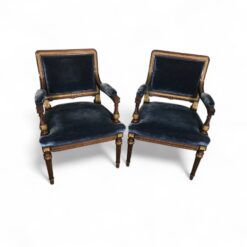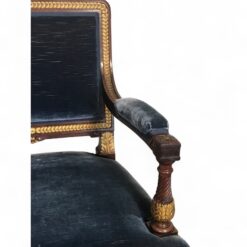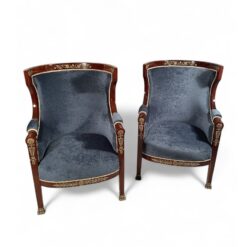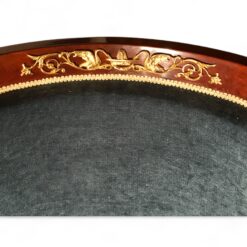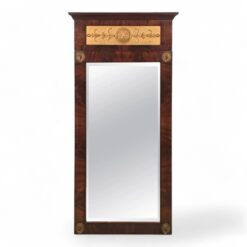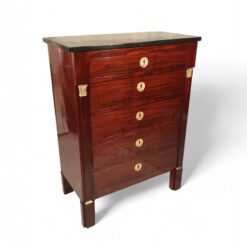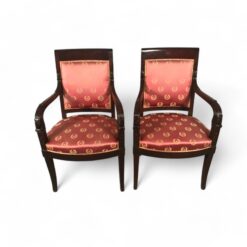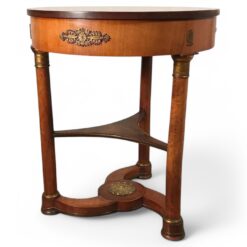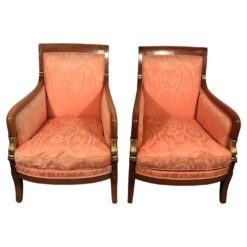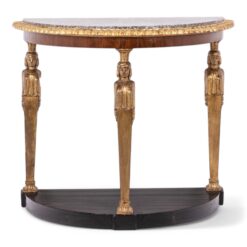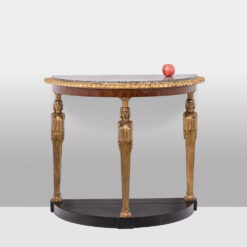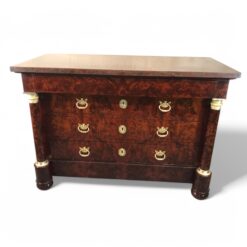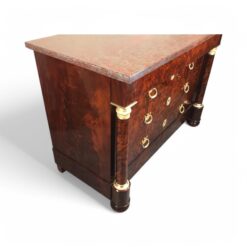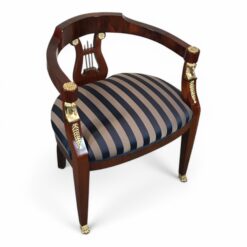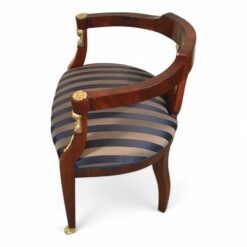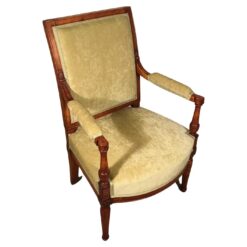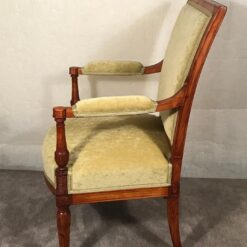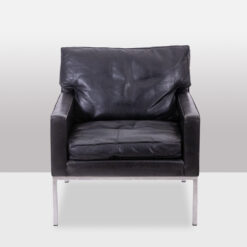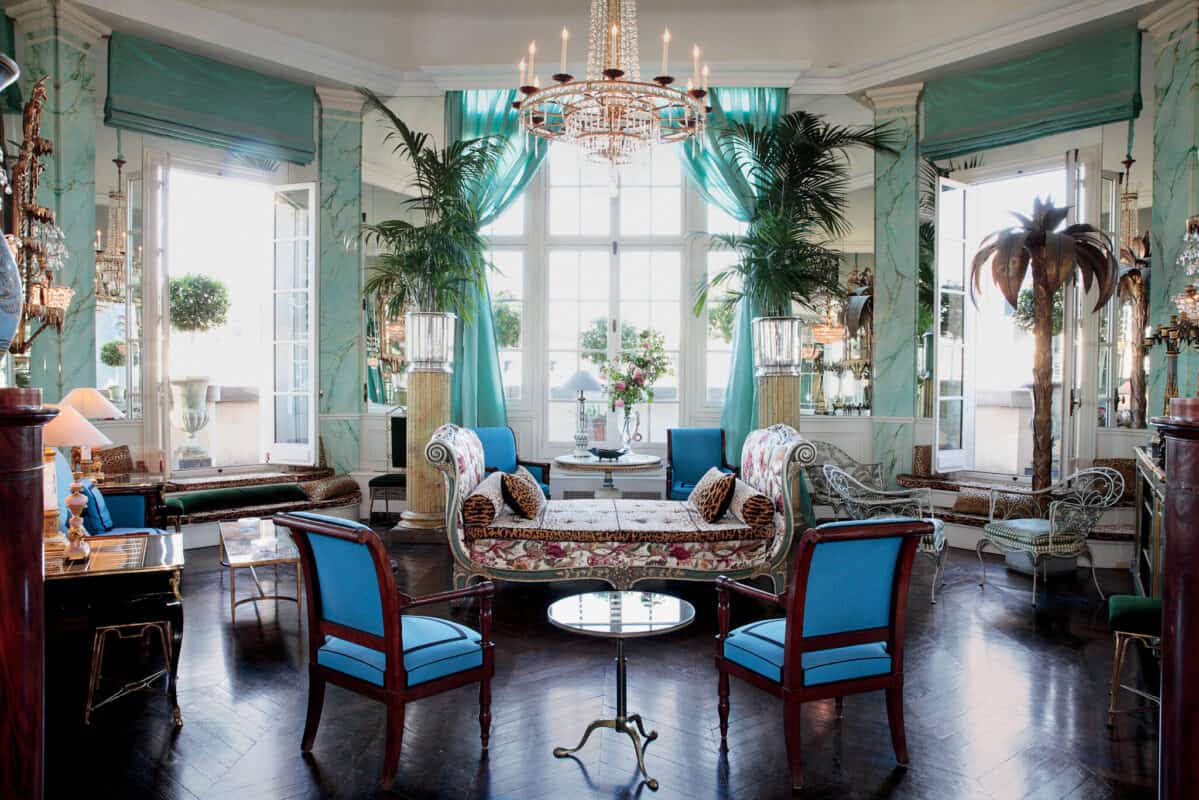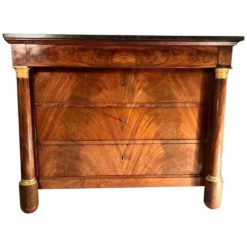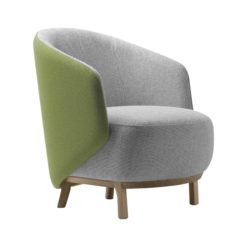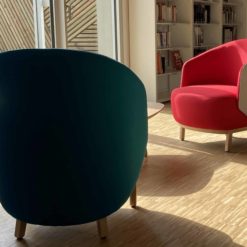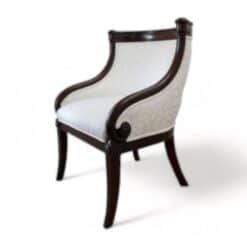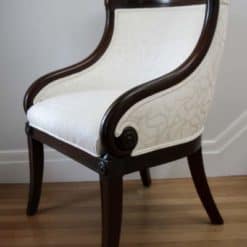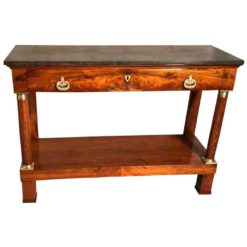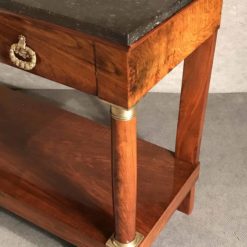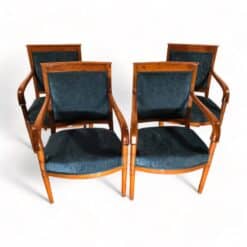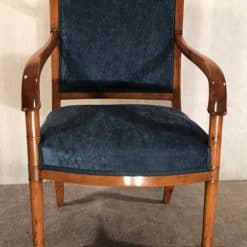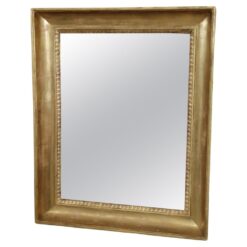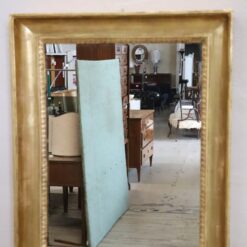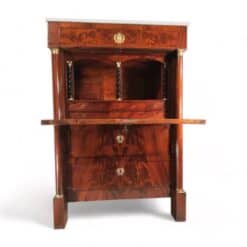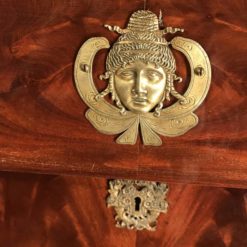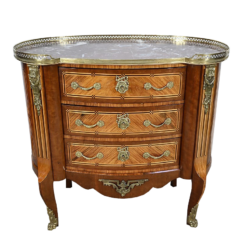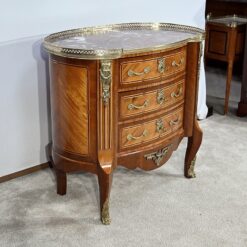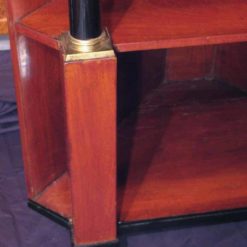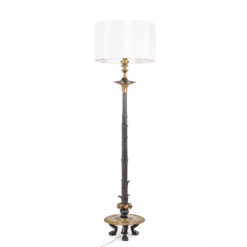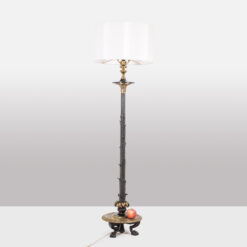Best Sellers
Furniture, Style, Styylish History
French Furniture Styles: Through the Centuries
Welcome back to our exploration of French furniture styles! In the previous blog post, we delved into the rich history of French decorative arts. We looked at many eras of furniture, from the Middle Ages through Louis XV furniture and Louis XIV style, to the end of the 18th century. We marveled at the intricate designs and cultural influences that shaped those periods. Today, we move onward into French history, past the French Revolution and into the 1800’s. We continue our journey by shifting our focus to styles from the 19th century to the present day. Join us as we uncover the elegance, opulence, and evolution of French furniture from the Empire style to the contemporary masterpieces of the 21st century.
The Empire Style: A Reign of Grandeur
Firstly, one of the most iconic French furniture styles of the 19th century is the Empire style. This emerged during the reign of Napoleon Bonaparte. Inspired by classical antiquity, this furniture exudes grandeur, power, and a sense of imperial splendor. Furniture from this era is characterized by bold, geometric forms, rich materials, and exquisite craftsmanship. While 17th century France popularized dressing tables, Empire Style also crafted many beautiful pieces that may have been once considered “ladies furniture”. Some elements of traditional dressing tables can be seen in this stunning Empire Console Table, Empire style pieces became a symbol of prestige and nobility.
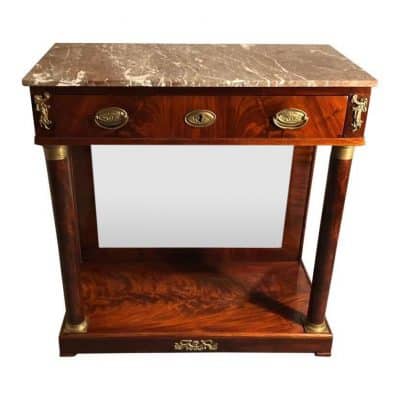
Imagine a magnificent Louis XVI Armchair as it becomes reinvented in the Empire style, featuring ornate gilt bronze accents, sumptuous upholstery, and intricate carvings. This fusion of classical elements and imperial motifs captures the essence of the Empire style, showcasing French craftsmanship at its finest. Note some of these influences and developments in this gorgeous Set of Four Empire Armchairs.
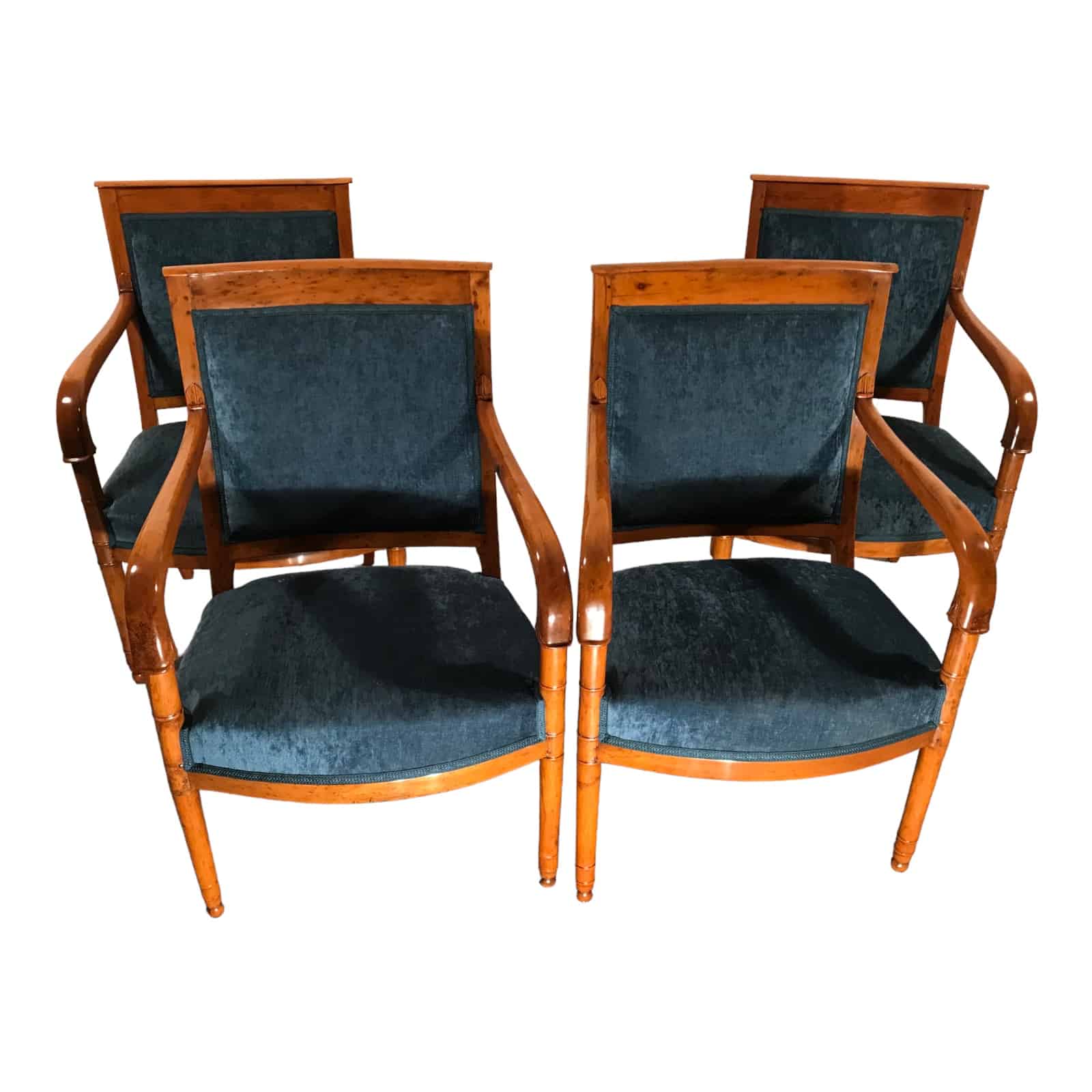
Reviving the Past with Restoration Furniture
The Restoration was a reaction against the gaudy spectacle and monumental pomp of the Empire. The era fostered an elegance, refinement and subtlety that had been obscured by Napoleonic grandeur. During the Restoration period in the early 19th century, there was a renewed interest in reviving earlier French furniture styles. The restoration movement sought to bring back the elegance and craftsmanship of the past, drawing inspiration from various historical periods.
This French Restoration Console Table is an exquisite mahogany piece. Furthermore, furniture from this era often featured neoclassical elements, such as fluted legs, lyre-shaped backs, and intricate inlays. Restorations focused on preserving and refurbishing antique pieces, breathing new life into cherished French furniture styles that had captivated generations.
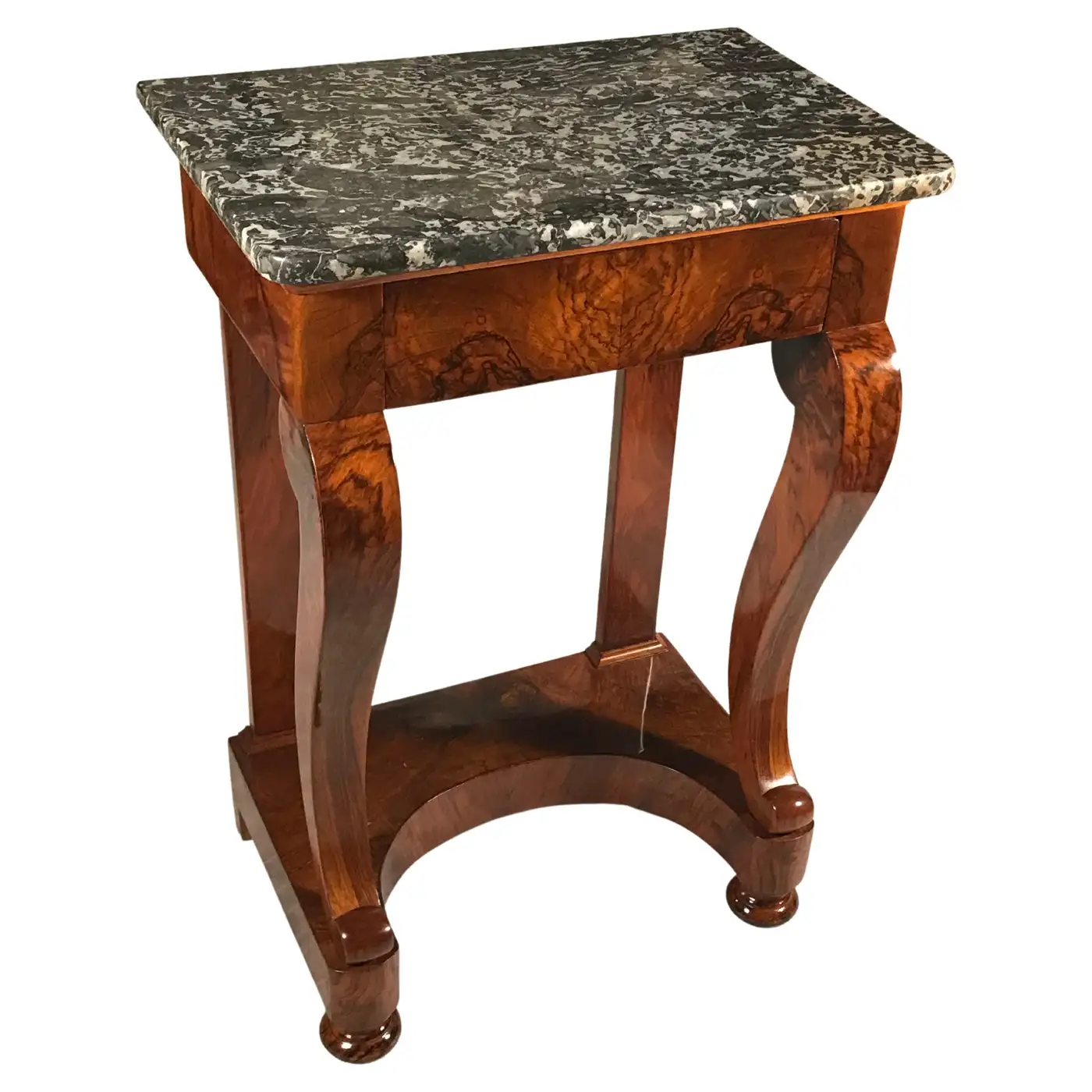
Louis Philippe: An Era of Elegance
The reign of Louis Philippe, known as the July Monarchy, left a distinct mark on French furniture design in the mid-19th century. The Louis Philippe style embraced a more relaxed and approachable aesthetic compared to the opulence of previous periods. Furniture during this era featured clean lines, gentle curves, and a focus on functionality. Mahogany, walnut, and cherry wood were commonly used and pieces were often embellished with understated details such as moldings and brass accents.
As exemplified by this Louis Philippe Solid Walnut Antique Wardrobe, the Louis Philippe style exuded an air of refinement, catering to the tastes of a rising middle class. Fine furniture was no longer restricted to royalty and aristocrats.
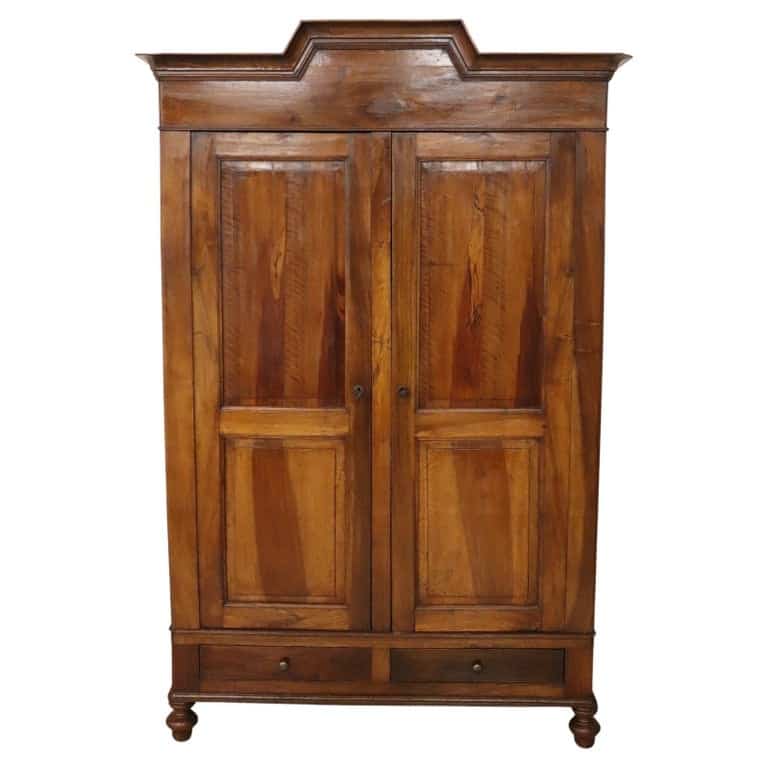
Splendor and Eclecticism in the Second Empire
The Second Empire period, spanning from 1848 to 1880, was a time of architectural and artistic revival in France. It was also known as the Napoleon III style. The furniture of the Second Empire embraced a mix of styles, blending influences from the Renaissance, Baroque, and Rococo periods. Characterized by ornate carvings, gilded embellishments, and luxurious fabrics, furniture from this era exuded a sense of grandeur and opulence.
This Second Empire Side Table is a divine piece, full of historical charm. This item was crafted in an influential era alongside elaborate dining tables with intricate marquetry, upholstered armchairs with rich brocade fabrics, and elaborate cabinets adorned with gilt bronze accents. This period witnessed the height of French furniture’s exuberance and reflected the diverse tastes of the time.
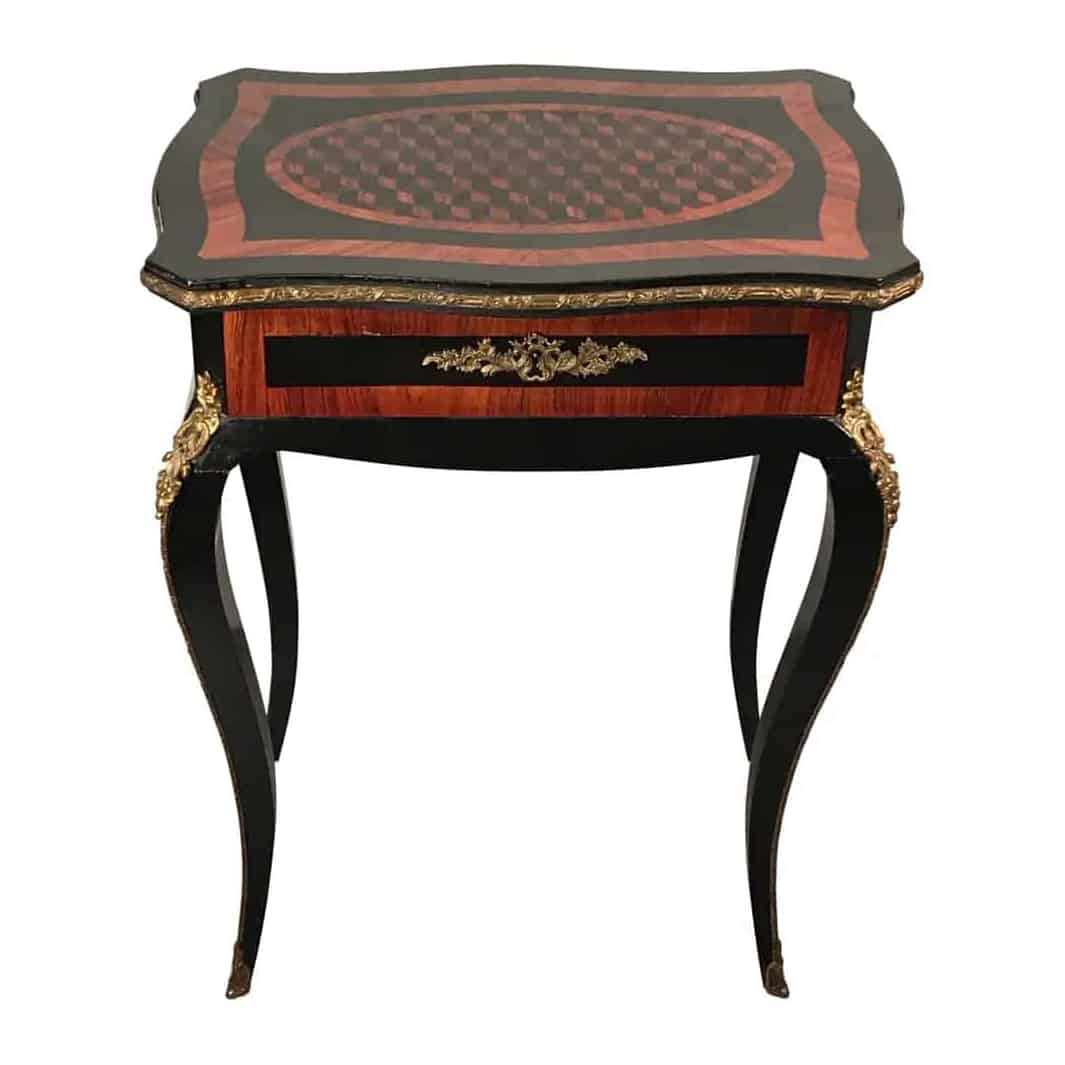
Transition into the 20th Century: Art Nouveau Style
As the 19th century gave way to the 20th century, French furniture design underwent a significant transformation. Two prominent styles emerged. Firstly, Art Nouveau embraced flowing lines, organic forms, and a celebration of nature. Take in the beauty of this Art Nouveau Marquetry Side Table. This showcase piece beautifully embodies the artistry and natural inspiration that defined the Art Nouveau movement.
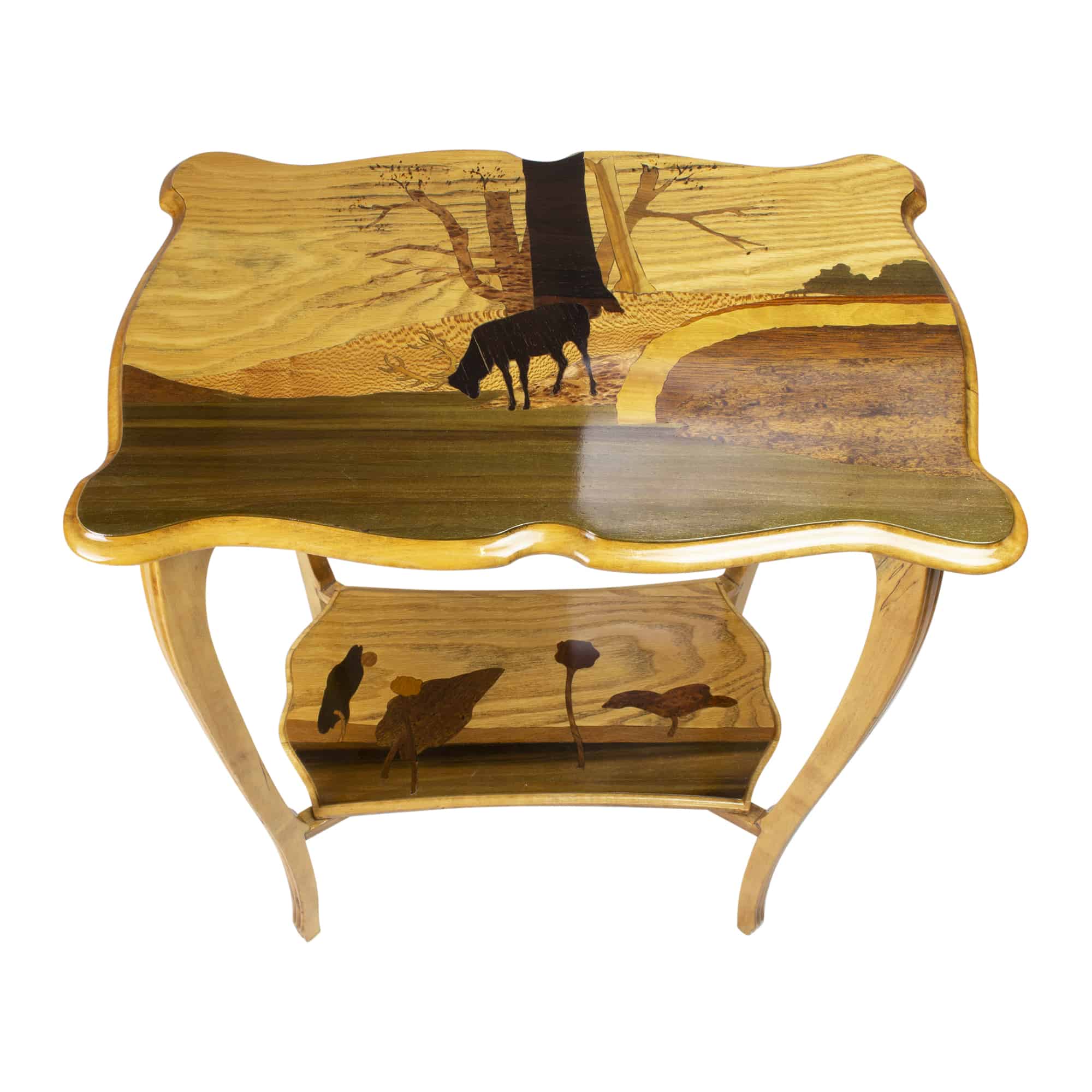
Art Nouveau was an art movement of the early 20th century. We reach a century shaped by Romanticism, Arts and Crafts pedagogy, and the rise of industrialism. Art Nouveau artists achieve slender organic shapes inspired by natural splendor, by using industrial practices to shape materials in new ways. A direct antecedent to the more famous Art Deco, Art Nouveau marked a major visual turning point in the history of interior decor. These pieces are among our most uniquely attractive.
Art Deco Arrives in French Style
From roughly 1910, to 1935, French furniture makers produced innovative pieces in the Art Deco style. Art Deco embraced geometric shapes, bold colors, and a sense of modernity.
Moving forward in time, we encounter the iconic Art Deco style, which became immensely popular in the 1920s and 1930s. Think of a sleek, geometric Dining Table with a polished metal base and a glossy black lacquered top, epitomizing the elegance and sophistication of Art Deco design. Such pieces embraced modern materials, innovative techniques, and a sense of glamour that perfectly captured the spirit of the time.
The Art Deco Console Table
The inimitable style of 1920s urban splendor, Art Deco is as distinctive as it is attractive. Take for example, this Art Deco Console Table, a beautiful original piece from 1910.
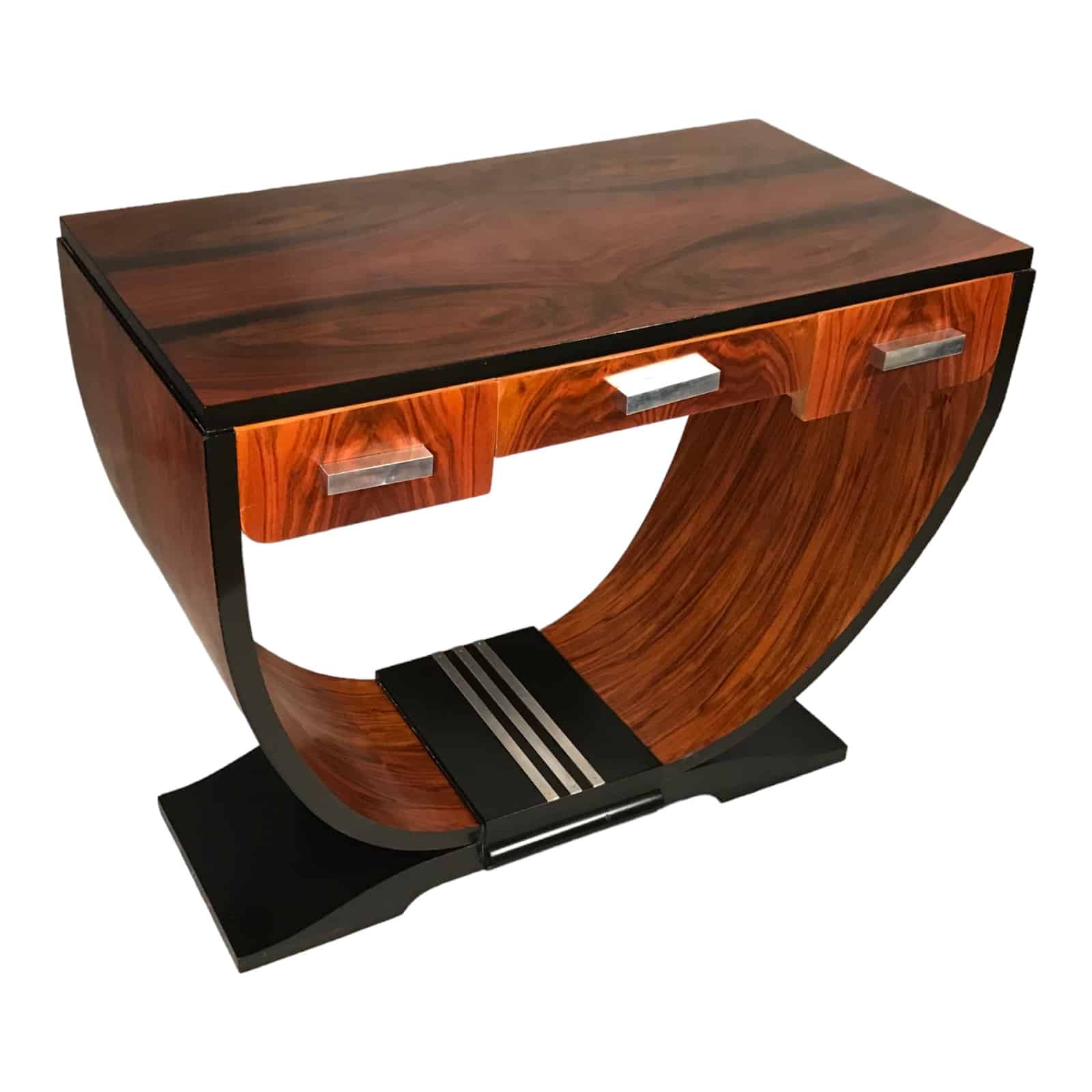
Characterized by a visual focus on height, geometry, and contrast, as well as the incorporation of industrial materials, this style connects modern aesthetics to antique practices. That’s one of the reasons Art Deco pieces are amongst our most popular – what style better encapsulates the potential of mixing antiques and modern pieces?
Contemporary French Furniture: Embracing Tradition and Innovation
In the 21st century, French furniture design continues to evolve, combining elements of tradition and innovation to create breathtaking pieces that suit modern lifestyles. Today, designers draw inspiration from past styles while infusing them with contemporary sensibilities, resulting in furniture that is both timeless and relevant.
This Modern Lounge Chair with Footstool is enveloping and is shaped like a concha (seashell). The famous bay in San Sebastian, which is shaped like a seashell, gave the inspiration for the name concha. This collection is perfectly suited for any interior design style. You can choose between different colors.
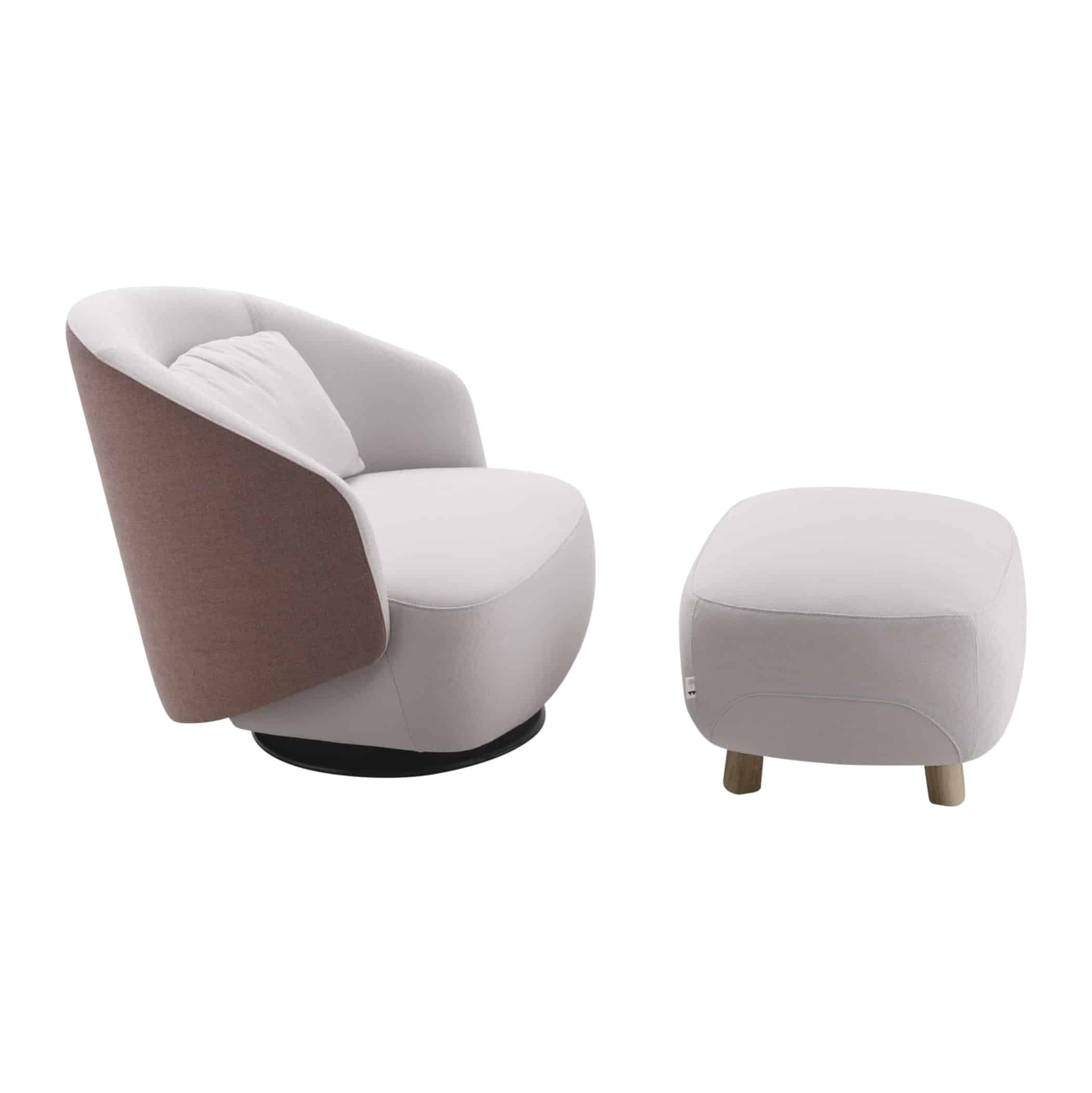
Tracing back through chair history, you can see connections and inspirations to past designs, as well as ways that creators now are making their own mark on style.
French Artwork and Technology
Beyond the traditional styles, French furniture designers also explore new avenues, pushing boundaries and embracing experimentation. Contemporary creations include everything from minimalist designs to eclectic combinations of materials and textures. Fresh designs out of France offer a diverse range of options for those seeking unique and personalized pieces.
Take, for instance, these exquisite Contemporary Pendant Lights. They are uniquely stunning, made of Murano glass, handcrafted by master glassblowers using traditional techniques. Do not underestimate the importance and power of good lighting.
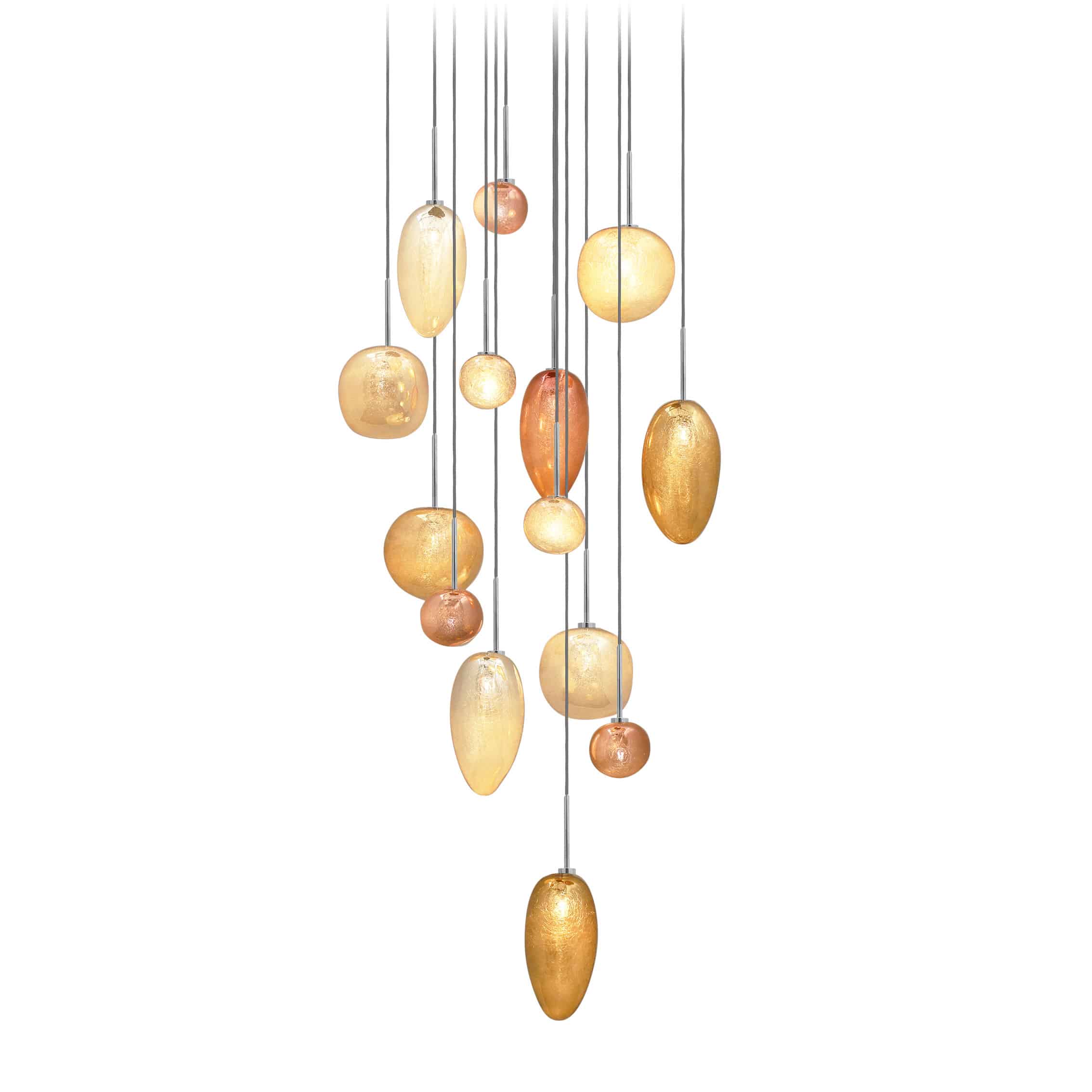
Additionally, there have been expansive developments in home decor that include creative use of technology. This Digital Art Painting is by French artist Sandrine Berthon, titled “Hors du Temps“. It is a digital creation, with some touch of varnish, paint and gold leaves. The technique used by Berthon gives the modern artwork an incomparable depth and color intensity.

This particular item is a limited edition, with only eight copies for sale. Additionally, the artist signed the piece on the back with a certificate of authenticity.
Styles of French Furniture Throughout History and Today
As we conclude our journey through French furniture styles, lets reflect. What a marvelous evolution of French design from the Empire style to the present day. Previously, you read about our beloved eras of the distant past. These include Baroque and Louis XIV furniture, the delicate Rococo and Louis XV, Transitional Style, Louis XV style, and Directoire. Now you can recognize the opulence of the Empire era, the organic beauty of Art Nouveau, the modernity of Art Deco and the innovations of contemporary designers. French design continues to captivate with its timeless charm and unparalleled craftsmanship.
Whether you find yourself drawn to the grandeur of Empire style, the flowing lines of Art Nouveau, or the sleek elegance of contemporary design, there’s a French furniture style to suit every taste and interior. So, embrace legacy and let the enchanting allure grace your home with elegance and sophistication.
Remember to check out our online store, where you’ll discover a curated collection of exquisite pieces that embody the rich history and craftsmanship of this timeless style. Our pieces on Styylish.com transport you to a world of elegance and beauty that transcends time.

